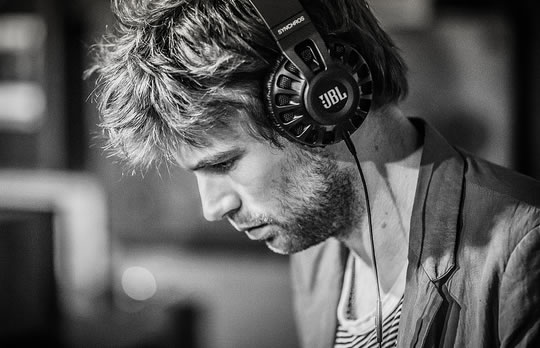Powerful Music

Last night at the Barbican I
was privileged to hear the world premiere of a new piece by Jonathan Dove
called Hojoki. The work is based on an autobiographical story by Kamo no
Chomei, a Buddhist monk who lived in the 13th century. Written in 1212, Hojoki
tells of his move from Kyoto to escape the constant threat of natural and
man-made disasters in the city. In this composition, the story was narrated by
a countertenor soloist with the orchestra providing dramatic colour. For me it
was extremely moving and the rest of audience seemed to think so as well. But,
why does music have the power to access deeper parts of ourselves, to strike at
the heart of what it means to be human?
The power of music is a theme
taken up by Oliver Sacks, writing a commentary in the neurology journal
‘Brain’. Sacks (2006) explains how Parkinsonian patients, normally subject to a
startling range of involuntary movements, can sometimes be stilled by music.
Similarly, sufferers from Tourette’s syndrome, through music, can be
temporarily relieved from their tics. Even those with advanced dementia, whose
ability to experience strong emotions appears to have been eroded, are
sometimes transported by familiar songs.
Not only can music release
some patients from their motor or cognitive dysfunction, but, for others, music
is almost too powerful. Those with ‘Williams Syndrome‘ appear hypersensitive to
the emotional impact of music. Sacks (2006) describes witnessing a group of
young people with the syndrome crying uncontrollably to sad music.
The reactions of those with
Williams Syndrome hints at the darker side of our special sensitivity to music.
Sacks (2006) describes how musical hallucinations affect at least 2% of the
population with some reporting songs looping in their heads. A few seem to be
having the real experience of hearing music, which can initiate a fruitless
search for the hidden source. At the most extreme, for some with epilepsy,
music can even cause seizures, especially when its content has particularly
rich emotional connections for the hearer.
To Sacks these findings
suggest a special role for music in the brain:
“Our auditory systems, our
nervous systems, are tuned for music. Perhaps we are a musical species no less
than a linguistic one. But there seems to be in us a peculiar sensitivity to music,
a sensitivity that can all too easily slip out of control, become excessive,
become a susceptibility or a vulnerability. Too-muchness lies continually in
wait, whether this takes the form of ‘earworms’, musical hallucinations, swoons
and trances, or music-induced seizures. This is the other side of the otherwise
wonderful power of music.” (Sacks, 2006:2532)
Music has been a hot topic in
the psyblog-o-sphere over the last few weeks. I found Sack’s article through
Brainethics.
About the author
Psychologist, Jeremy Dean, PhD is the founder and author of PsyBlog. He holds a doctorate in psychology from University College London and two other advanced degrees in psychology.
He has been writing about
scientific research on PsyBlog since 2004. He is also the author of the book
“Making Habits, Breaking Habits” (Da Capo, 2003) and several ebooks.
SOURCE: PSYBLOG
Comments
Post a Comment